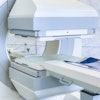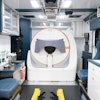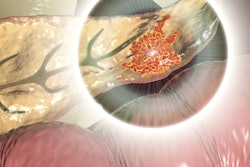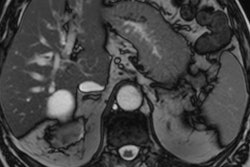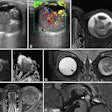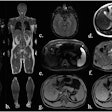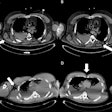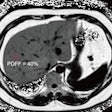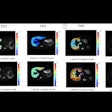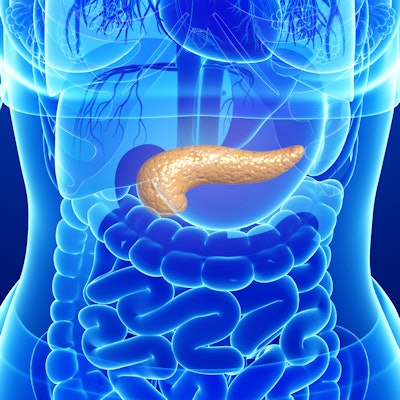
Women carrying the BRCA mutation who undergo regular screening breast MRI also can be screened for pancreatic cancer using a rapid protocol that takes just 10 minutes, according to a study published online on 28 January in European Radiology.
The results show that there's an efficient way to check for pancreatic cancer in this at-risk population, wrote a team led by Dr. Giuseppe Corrias of Memorial Sloan Kettering Cancer Center in New York and the University of Cagliari in Italy.
"Combined with breast MRI screening, [the pancreatic MRI protocol] offers a rapid, noninvasive, and potentially inexpensive screening tool of the pancreas for BRCA patients," the study authors wrote.
BRCA1 and BRCA2 mutations are associated with increased risks of breast and ovarian cancers, pancreatic ductal adenocarcinoma, prostate cancer, and melanoma. Overall lifetime risk for pancreatic cancer in women who carry the BRCA mutation has been estimated to be between 1% and 5%, with a 1.5 to 9 times higher relative risk of developing the disease compared with those who do not have it, the group wrote.
Population-based pancreatic cancer screening has not been established because of the low incidence of the disease, according to Corrias and colleagues. However, since women at higher risk of breast cancer receive regular screenings, MRI offers a way to check for pancreatic cancer at the same time.
The researchers developed a 10-minute screening protocol for pancreatic cancer on MRI. Images were taken after a contrast-enhanced breast MRI exam with the patient in the same prone position with the breast coil still in place, using the built-in body coil of the MR scanner without adding a dedicated phased-array coil.
The study included 40 women who had breast MRI screening between August 2015 and October 2017; the mean age was 48 years. Of these women, 20 carried the BRCA1 mutation, 19 carried the BRCA2 mutation, and one carried both. Two radiologists evaluated the pancreatic images, grading them on a five-point scale (with 1 equal to all diagnostic information present and 5 equal to a nondiagnostic exam).
The rapid pancreas MR protocol was successful in all 40 patients, and all images were of diagnostic quality, the team noted. The scans identified a pancreatic tumor in one patient, who was treated with surgery. Four other patients had pancreatic cystic lesions, and one patient had a hepatic mass that was confirmed as adenoma on liver MRI. Breast MRI identified one breast cancer.
"Our study led to the findings of two cancers in total, a breast cancer recognized from the routine breast MRI examination, and a pancreatic cancer found from our investigational screening protocol," the group wrote.
Adding pancreatic cancer screening to breast MRI appears to be feasible -- and could help this particular population of at-risk patients, Corrias and colleagues concluded.
"Given the earlier age at which pancreatic ductal adenocarcinoma and its precursors may develop in BRCA-positive patients, this may justify implementing the screening tool in a population of young patients," the group wrote.
